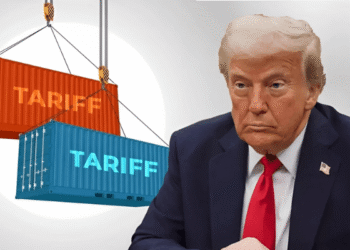The upcoming US election is not just a battle for political supremacy; it’s a referendum on the country’s economic future. The outcome will have far-reaching consequences for your personal finances, job security, and economic well-being.
The US economy is at a crossroads. The recovery from the last recession has been slow, and the country faces new challenges, including rising inequality, stagnant wages, and a looming trade war.

Personal Finances
The election outcome will have a profound impact on our personal finances, affecting our take-home pay, job security, and access to affordable healthcare and education.
Taxes are a critical issue that will impact our financial well-being. Some candidates promise tax cuts, while others aim to increase taxes on the wealthy. Under Trump’s tax plan, middle-class households could end up paying more, while Biden is fighting to reduce the deficit, cut taxes for working families, and invest in America by making big corporations and the wealthy pay their fair share.
And then there’s job security. Job security is another critical issue at stake. The election outcome will determine whether we see more employment opportunities or fewer benefits. The candidates’ policies will influence the job market.
Healthcare is an issue that will significantly impact our well-being. Will we have access to affordable healthcare, or will costs skyrocket? Trump’s priorities on healthcare are unclear, as he frequently changes his positions on the issue. However, his administration’s “Operation Warp Speed” achieved a remarkable feat by developing, testing, and distributing a COVID-19 vaccine in record time.
On the other hand, Biden has promised to build upon the Affordable Care Act (ACA), expanding coverage and reducing costs. He aims to protect the ACA from repeal efforts and ensure that healthcare is a right, not a privilege. Biden also proposes to lower prescription drug costs and improve healthcare access for rural communities.
Education is a pressing issue that will shape our financial future. The burden of student loan debt is a crushing reality for many, limiting their potential and financial stability. Biden’s new plan offers hope, with automatic student loan forgiveness that eliminates the need for borrowers to submit requests for relief.
This could be a game-changer for those saddled with debt, allowing them to pursue their dreams without financial shackles. Will we see a new era of affordable education, or will the status quo persist?
Trade and Global Economy
The US is entangled in a web of trade tensions with China, Mexico, and other nations, leaving the global economy on edge. The election outcome will either ease or exacerbate these tensions, impacting trade policies, tariffs, and our economic well-being.
Trade agreements like NAFTA, TPP, and USMCA hang in the balance, with candidates holding differing views on their fate. Meanwhile, the BRICS nations (Brazil, Russia, India, China, and South Africa) are spearheading a De-dollarization agenda, aiming to reduce their dependence on the US dollar in international trade. Will we see a new era of free trade or a resurgence of protectionism? The outcome will influence imports, exports, and prices, affecting our purchasing power and financial stability.
Tariffs imposed on Chinese goods and potential new tariffs on other countries will either be lifted or intensified, depending on the election result. This could mean cheaper goods or higher prices, impacting our budgets and spending habits.
Our investments and retirement savings are also at stake. The candidates’ economic policies will sway the stock market, affecting our investments and retirement accounts. Social Security benefits, funding, and eligibility requirements may also be impacted, leaving us wondering about our financial security in retirement.
The election outcome will have far-reaching consequences for our financial lives, from trade and tariffs to investments and retirement. The US election is a pivotal moment for the country’s economic future. The candidates’ economic agendas will shape your personal finances, job security, and investments.

















